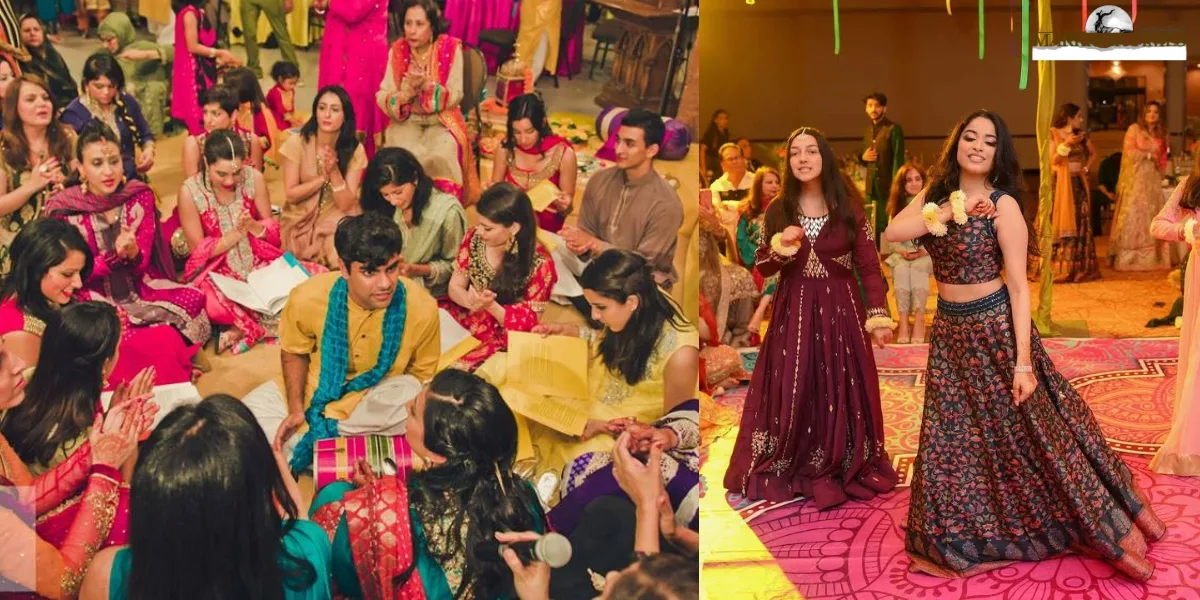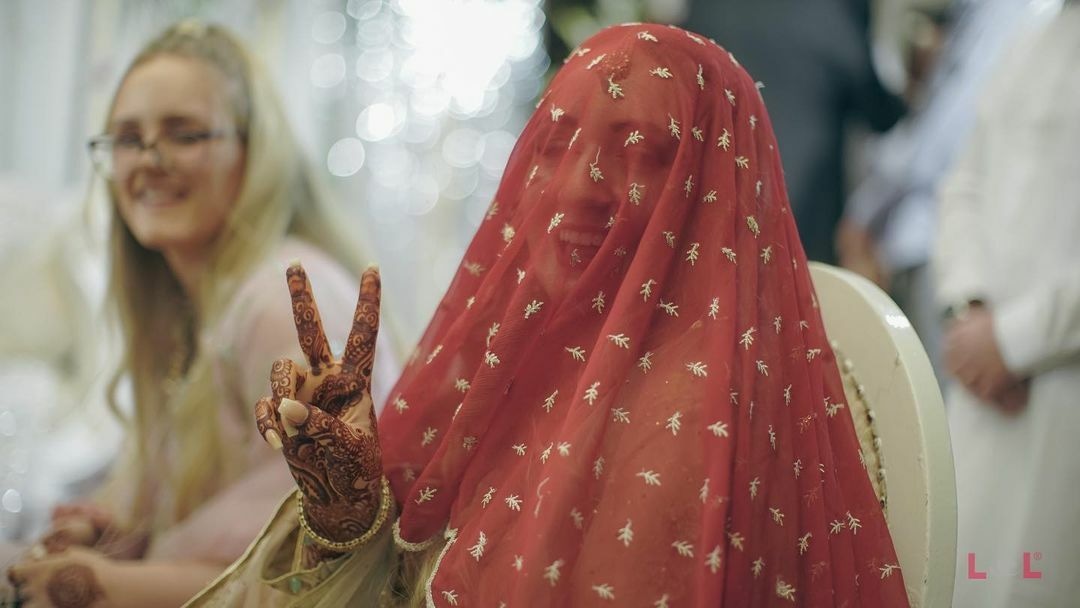Gone are the days when Pakistani weddings were intimate affairs filled with family warmth, off-key dholki singing, and a few perfectly imperfect photos taken on a cousin’s phone. Fast forward to 2025, and your average shaadi now looks more like a Netflix production complete with drone shots, outfit changes, and carefully choreographed dance numbers designed for maximum reel engagement.
So what changed? In one word: social media.

The Influencer Effect
Every scroll through Instagram or TikTok wedding content feels like a vision board on steroids. Influencers flaunt floral ceilings, custom hashtags, and wedding invites delivered with PR-box-level packaging. It’s glamour, it’s sparkle and it’s deeply contagious.
We don’t even realise it, but slowly, the line between inspiration and imitation blurs. We start saving posts, pinning decor ideas, mentally budgeting for smoke machines and LED floors. Social media subtly whispers: your wedding should look like this.
And so we follow. We add an extra event. We book the drone guy. We turn to choreographers, not cousins, for mehndi dances. Because if it didn’t trend, did it even happen?
The Pressure to Perform
Social media thrives on visibility and weddings, once private milestones, have become our most public performances. It’s no longer just about celebrating love; it’s about proving it. We’re not just dressing up for our guests we’re dressing up for the feed. Every function becomes a photoshoot. Every candid moment, a curated post.
We’ve started planning weddings with content in mind: “Will this look good on Instagram? Should we do a first look for TikTok?”

The Downside: When the Scroll Becomes a Script
This performative pressure doesn’t come cheap emotionally, mentally, or financially. Couples feel overwhelmed. Families feel burdened. The actual essence of the shaadi gets lost in transitions and timelines. And then comes the kicker: even those who have the most viral weddings admit it wasn’t all worth it.
Rajab Butt’s Honest Regret
TikTok star Rajab Butt whose wedding racked up millions of views—recently shared that he regrets making it so public. Not because it wasn’t beautiful. But because since then, he’s faced nonstop problems.
“I shouldn’t have highlighted my wedding the way I did. Nazar lag gayi,” he admitted.

His words hit harder than a dance drop. This wasn’t a dramatic tell-all. It was a soft, sincere moment of honesty and a warning. Because when joy becomes performance, it also becomes vulnerable. To comparison. To judgment. To nazar.
Reclaiming the Real
Thankfully, a quiet shift is underway. More couples are choosing intimacy over impact. Fewer hashtags, more heartfelt duaas. Backyard ceremonies. No-phone nikkahs. Unplugged moments that feel good, even if they don’t look viral. They’ve realised: weddings are not content. They’re sacred. And no trend is worth losing the moment itself.
Final Thoughts: Love, Not Likes
Social media gave us access to beauty, ideas, and creativity but it also gave us unrealistic expectations and performative pressure. In trying to live up to the highlight reels, we risk missing the real highlights. So, if a public figure who lives off the internet says, “I wish I kept this part of my life private” we should all take a second to listen.
No shade to the content queens, the viral grooms, or the families who spent months perfecting every frame. You do you. But let’s not forget that some things grow best away from the spotlight.
